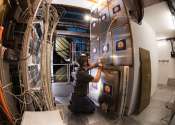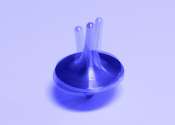Large Hadron Collider experiment zeroes in on magnetic monopoles
The late physicist Joseph Polchinski once said the existence of magnetic monopoles is "one of the safest bets that one can make about physics not yet seen." In its quest for these particles, which have a magnetic charge and ...









